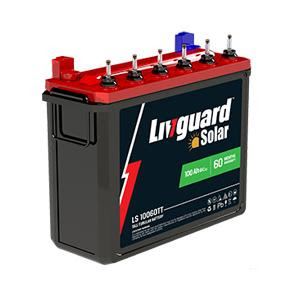Battery Breakdown: Lead Acid vs. Lithium Ion Batteries
Lead acid batteries, Lithium ion batteries
Both lithium-ion and lead-acid batteries function by storing electrical energy through electrochemical processes, but they operate differently in terms of how they extract and release electrons. Lithium ion batteries function by discharging negative and positive ions from the element lithium between electrodes. On the other hand, lead acid batteries follow the same procedure but with a different material.
Apart from their different materials, these batteries also vary in performance and cost. Lead acid batteries are comparatively cheaper than lithium-ion batteries. When seeking home energy storage, you can choose from a wide range of batteries. Let’s go through a comparison of these two most commonly preferred battery options based on their usage and importance.
Lead Acid vs. Lithium Ion Batteries: Uses
Lead Acid and Lithium Ion batteries are differently crafted to serve varying applications and uses. The uses of lead acid and lithium-ion batteries are as follows:
- Lead acid batteries are highly used in automotive industries, offering the required power for lighting, starting, and ignition systems.
- Lead acid batteries are installed to store additional energy that has been produced by renewable sources, which are later used to power businesses and homes as and when required. Hence, they are the perfect selection to store renewable energy sources as they come with easy maintenance, low prices, and longer lifespan.
- Lead acid batteries are also installed to provide backup power to communication infrastructure and cell towers.
- Lead acid batteries are extremely useful in marine applications, providing the needed power for communication systems, onboard lighting, and multiple electrical equipment.
Lithium Ion Batteries
- Lithium batteries offer low drain current, long life, and high energy density and, hence, are used in digital cameras for effective functioning. Most DSLRs and mirrorless cameras get their power from lithium-ion batteries.
- As lithium-ion batteries are rechargeable, they are highly preferred for laptops, smartphones, and other portable electronic devices.
- Small lithium-ion batteries are installed in watches. With their 3 Volt capacity, they offer a longer lifespan.
- Lithium-ion batteries are also used in surveillance systems and alarms in remote locations.
- With the enhanced reliability and mobility technology of lithium-ion batteries, they offer fast charging, expandable run time, and size customisation in electric wheelchairs, mobility scooters, and stairlifts.
Lead Acid vs. Lithium Ion Batteries: Importance
The importance of using lead acid and lithium ion batteries for multiple power needs is listed below:
Lead Acid Batteries
- The lead-acid battery's weight-to-energy ratio is relatively high. Yet, its affordability and ability to handle high surge currents make it popular for applications requiring capacity overload and handling concerns, typically above 10 Ah.
- While lead-acid batteries exhibit lower energy density compared to modern rechargeable batteries, their capacity to deliver high surge currents results in a notable power-to-weight ratio for the cells.
- Consequently, they have emerged as the industry standard in automotive applications, particularly as the primary power source for starting, lighting, and ignition (SLI) systems in vehicles, capable of delivering peak currents of approximately 450 amperes.
Lithium Ion Batteries
- Lithium batteries offer up to ten times the lifespan of lead-acid batteries. They retain 80% of their rated capacity after 2,000 cycles. Lithium-ion batteries last longer than the average two-year lifespan of lead-acid batteries.
- Lithium batteries require no active maintenance. They come with longevity on a one-time purchase.
- Lithium batteries offer versatility due to their ability to charge and discharge at high rates. They minimise downtime with fast charging and provide bursts of power when needed. In contrast, lead-acid batteries require staged charging over longer periods and are less efficient during high discharge periods, making them less versatile compared to lithium batteries.
- Lithium batteries excel in efficiency, particularly under high-stress conditions, as they are less affected by temperature fluctuations and energy depletion. Therefore, lithium batteries are the perfect choice for applications requiring more battery usage or operation in extreme weather conditions.
- Lithium batteries offer greater energy capacity. Compared to other battery chemistries, lithium provides equivalent or greater energy in less than half the weight and size, offering increased flexibility and simplified installation.
Lead Acid vs. Lithium Ion Batteries: Major Differences
To acknowledge the major differences between Lead Acid vs. Lithium Ion Batteries, refer to the table given below:
Factor | Lithium ion battery | Lead acid battery |
Price | Lithium batteries are expensive. | Lead acid batteries are cheaper as compared to lithium ion batteries. |
Common Usage | These are commonly installed for domestic power supply | These batteries are installed in equipment where higher battery backup and more storage are needed. |
Weight | They are light-weighted | They are larger and heavier than lithium batteries |
Efficiency | These batteries are highly efficient. | The efficiency of these batteries is lower than that of other batteries. |
Energy Discharge | Lithium batteries can discharge a higher amount of stored energy. | An efficient charging and discharging schedule is needed for battery health maintenance. |
Lifespan | They offer a longer lifespan. | They provide a shorter lifespan. |
Conclusion
Both lithium ion and lead acid batteries are used for energy storage and power supply. The applications, cost, size, and lifespan differ. Hence, before choosing the right type of battery, carefully consider the application you are purchasing for. Also, they must be bought from the best suppliers like LnTSufin who provide batteries from top brands to ensure longevity and warranty.




Comments
Post a Comment